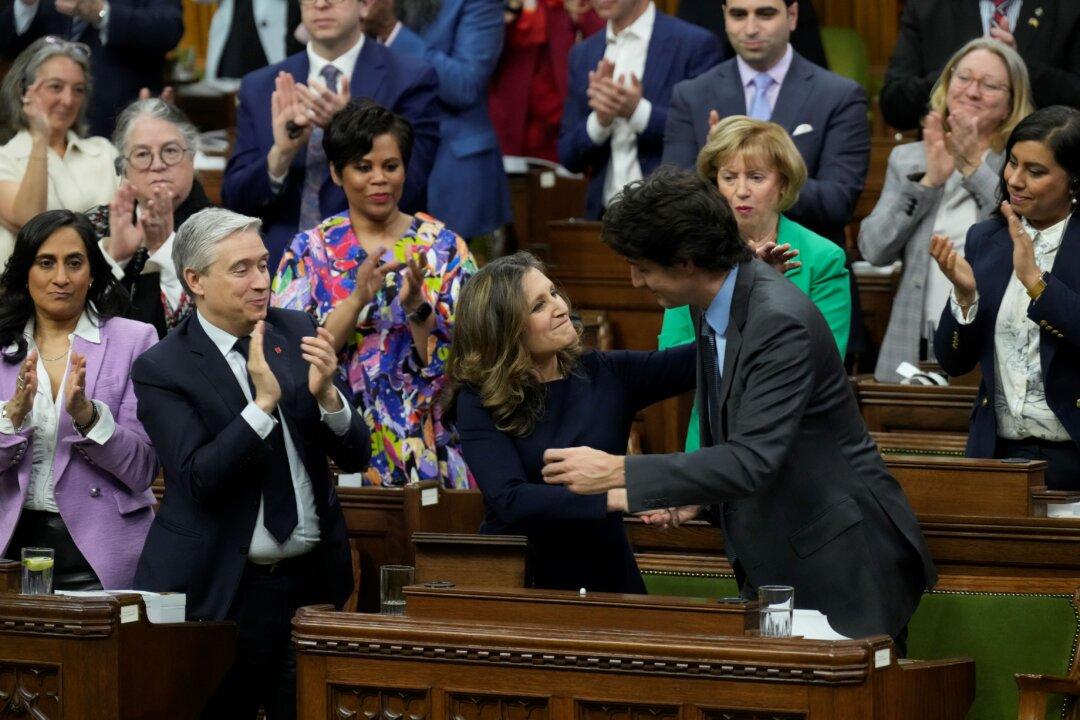With weeks of campaign-style announcements from the Liberal government, Canadians had a good idea of what was coming in the 2024 budget. Spending increases were pending for programs ranging from housing initiatives, to the military, to a massive injection of funds into AI development in Canada.
Viewpoints
Opinion
Cory Morgan: Ottawa’s Budget 2024 an Effort to Increase Popular Support Rather Than Get Finances in Order

Deputy Prime Minister and Minister of Finance Chrystia Freeland receives applause as she shakes hands with Prime Minister Justin Trudeau and other members of the Liberal party after she presented the federal budget in the House of Commons on April 16, 2024. The Canadian Press/Adrian Wyld




